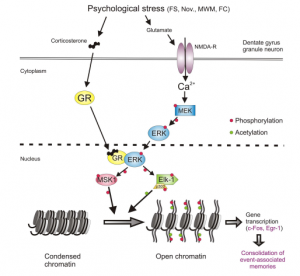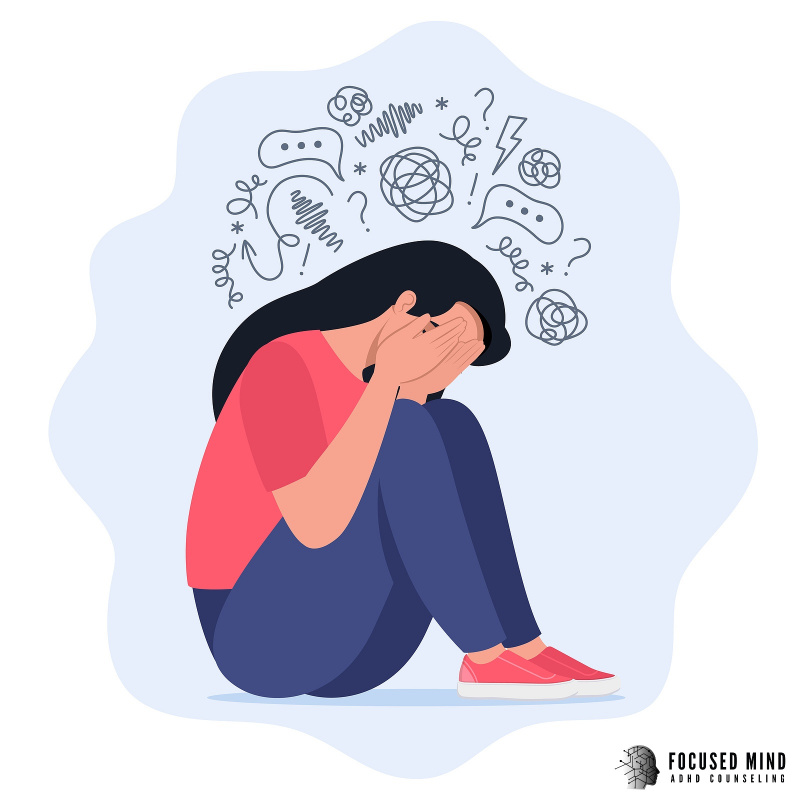Having an anxiety-ridden experience can cement into our memories, so it lives on for years afterward. For some people, there may only be a couple memories full of anxiety we can remember; however, for people with anxiety disorders, these memories become frequent. Typically, these memories can come up in daily lives and lead to people believing the worst-case scenario will occur. Anxiety allows us to adapt, but in anxiety disorders, it can impair daily functioning and turn daily activities or interactions into threats.
We will look at different anxiety disorders and symptoms, the science behind anxiety memories, as well as how anxiety can impair memory formation in daily life.
Anxiety Disorders
Some physical symptoms of anxiety include:
- Restlessness or feeling on edge
- Sleep difficulties
- Increased heartrate
- Sweating
- Shaking
- Hyperventilating
Psychological symptoms:
- Trouble concentrating
- Racing thoughts
- Difficulty controlling worry
- Avoiding anxiety-triggering interactions/places/situations
Some common anxiety disorders include Generalized Anxiety Disorder (GAD), Social Anxiety Disorder, Post Traumatic Stress Disorder (PTSD), Phobias, and other anxiety disorders.
Biological Pathways
Glucocorticoids are released in response to stress, they’re stress hormones. They go inside cells and activate Glucocorticoid Receptors (GR). These receptors can phosphorylate, or activate, ERK. ERK can further activate MSK and Elk-1, which will lead to the unraveling of DNA, the chromatin. [1]

This is especially prevalent in PTSD. [4] Trauma memories can disrupt daily functioning and become invasive. People at higher base-line levels of anxiety may be more prone to these anxiety-induced memories to form. [5]
Daily Memories and Anxiety
Anxiety in the classroom can distract students from learning and forming memories about the lesson content. People with Generalized Anxiety Disorder (GAD), characterized by anxiety or worry around multiple areas of life and a difficulty in controlling it, have reported difficulties with memory recall. [6]
It’s hypothesized that anxiety consumes so much mental energy, that little mental resources are left for memory encryption, storage, and recall. Working memory, which is short term memory of items told to you, such as someone’s phone number, is thought to be impaired in GAD and PTSD. [7]
While anxiety-memories seem to increase and have a strong long-lasting impact in anxiety disorders, creating and remembering memories for during daily life may be impaired while the person is experiencing anxiety.
Conclusion
Anxiety disorders have a variety of physical and psychological symptoms, but it does impact daily life. In the brain, we see stress hormones released during anxiety that leads to the unraveling of DNA. This unraveling of DNA leads to memory formation. These strong anxiety memories create a cycle of anxiety as the person will go to worst-case scenarios for daily life.
References
[1-5] Reul, J. M. H., (2014). Making memories of stressful events: a journey along epigenetic, gene transcription, and signaling pathways. Frontiers in Psychiatry, 5(5). doi: 10.3389/fpsyt.2014.00005
[6, 7] Gkintoni, E., & Ortiz, P. S. (2023). Neuropsychology of Generalized Anxiety Disorder in Clinical Setting: A Systematic Evaluation. Healthcare (Basel, Switzerland), 11(17), 2446. https://doi.org/10.3390/healthcare11172446
